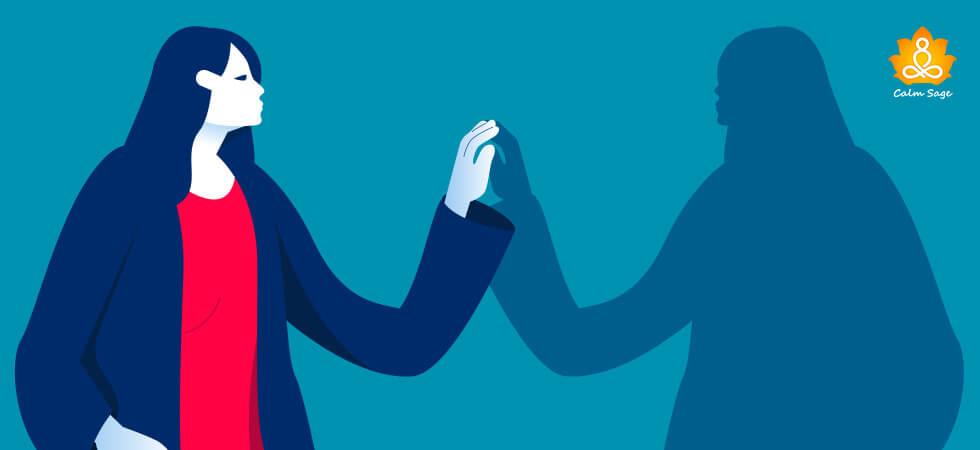Freud’s Unconscious Mind and Conscious Mind: How It Influences Your Behavior

There must have been instances where you must have wondered why you do things you do or why you behave certain ways, have certain fears, or make decisions that go against your judgment. I know I have on many occasions thought about my behaviors and the reasons behind them. The answer I found was something I never put much thought into – the unconscious mind.
Sigmund Freud, the founder of psychoanalysis, believed that the unconscious mind is a powerful force that has the power to influence behavior, even though our consciousness might not be aware of it.
Strangely intriguing, isn’t it? Well, in this article, we’re exploring Freud’s theory of the conscious and unconscious mind and how it influences our behaviors. Keep reading to know how you can access your unconscious mind to improve your life and well-being.
Freud’s Three Levels of Mind
I want you to imagine an iceberg with its tip visible but the rest of it underwater. Freud believed that our minds are like an iceberg. The conscious mind is the tip of the iceberg whereas the unconscious mind is the one that’s submerged beneath the surface.
The conscious mind is that part of the mind that we’re aware of. It includes the thoughts, sensations, and feelings that we experience. This conscious mind is responsible for our rational thinking and decision-making.
The unconscious mind is what’s outside our conscious awareness. It includes our thoughts, memories, and impulses that are unacceptable or difficult to consciously control or acknowledge. Despite its nature, our unconscious mind can have a strong influence on our behaviors as it is the one that drives our impulses and shapes our desires and decisions.
An example of this could be; If you are scared of snakes, then your unconscious mind might trigger a fear response when you see a snake, even if you’re not aware – at least consciously – of the snake. Or if you have affection towards someone, then your unconscious mind might be drawn to them because they remind you of something from your past.
The unconscious mind can also cause some problems and it can also be a contrasting source of our strength.
An example of this could be; When you’re working on something creative, your unconscious mind might give your ideas you might not have thought of consciously. Or if you’re stuck on something, then your unconscious mind can help you find the strength and resilience to overcome it.
Just like the unconscious mind and conscious mind, there’s the preconscious mind. Freud believed that the preconscious mind includes thoughts and memories that are not in our awareness but can be easily brought to the conscious mind.
An example of this can be; If you’re asked to think about your favorite color, you might not be consciously thinking about it, but as the question is asked, it can be easy to bring that information to the front of your mind from your preconscious mind.
Preconscious Mind And Behavior
The preconscious mind plays a significant role in our behaviors. This part of the mind is responsible for our automatic thoughts and behaviors. An example of this can be;
When you’re driving a car, you don’t have to consciously think about everything that’s involved in driving such as turning the corner or shifting gears. These actions are stored in your preconscious mind and are automatic behaviors.
The preconscious mind is also responsible for our emotional responses. Let’s take the example of the snake once more. If you see a snake, you may experience fear without having to consciously think about the response. This fear response is in your mind and can be triggered by whatever you fear at that moment.
Unconscious Mind and Behavior
Freud believed that our unconscious mind can have a strong influence on our behaviors, even if we’re not always aware of its influence. An example of this can be;
Our dreams! Freud believed that our dreams can give us insights into our unconscious thoughts and desires. He believed that the slip of the tongue can reveal unconscious conflicts.
While what thoughts we have in the unconscious mind are out of our awareness, they can continue to affect our behaviors. Some of the common ways our unconscious mind can influence our behavior can include;
- Self-defeating thoughts
- Negative thoughts
- Anger
- Compulsive behaviors
- Unhealthy habits
- Bad or stressful dreams
- Prejudice and stereotypes
Conscious Mind and Behavior
Let’s talk about the conscious mind and its influence on our behaviors. Even our conscious mind can play a role in how we act and think. We use our conscious mind to make rational decisions, solve problems, and control our emotions and impulses. But our conscious mind is not always the one in control. An example of this can be;
As you’re walking back home, you see a homeless person. You consciously think about the person’s living situation and you decide to help them by giving them money. This is when your conscious mind reasons about the situation and makes a rational decision about how you can act.
Our conscious mind is the one responsible for our rational decision-making and the ability to control our impulses. Other ways our conscious mind can affect our behavior can include;
- What we choose to eat for our meals
- What we decide to wear
- Solving a tough equation
- Playing a musical instrument
- Resisting the urge to eat another piece of cake
- Forgiving someone
Can We Access the Unconscious Mind?
Yes, it is believed that you can access the unconscious mind. Freud even developed different techniques to help with this. These techniques are still used today by psychoanalysts and therapists to help others understand their unconscious issues and conflicts. Some of the techniques that can help access the unconscious mind include;
- Free Association: It’s a technique that involves saying whatever comes to mind without judgment. Free association can help you access your unconscious thoughts and feelings.
- Dream Analysis: Another technique that can help you peek through your unconscious mind is dream analysis. Dreams, as Freud believed, can provide insight into our unconscious or repressed thoughts, desires, fears, and conflicts.
- Hypnosis: It’s a state of deep relaxation that can be used to access the unconscious mind. Hypnosis can also plant ideas and suggestions that can influence our behaviors.
- Meditation: It’s a practice that involves focusing your attention on the present moment. Meditation can help calm the conscious mind and allow you to access your unconscious thoughts and feelings.
Other ways that can help you access the unconscious mind can include;
- Keep a dream journal where you can write down your dreams as soon as you wake up. Doing this can help you remember your dreams and identify any recurring patterns or themes that can give you an idea of your unconscious thoughts and desires.
- Pay attention to slips of the tongue or other Freudian slips. These little slips can help you understand your unconscious and repressed thoughts and feelings.
- Try creative activities such as writing, painting, and creating music. These activities can help you access your unconscious mind too.
- Try things that take you out of your comfort zone. Trying new experiences and activities can also help you tap into the awareness and access areas of your unconscious mind.
The Bottom Line
Understanding Freud’s unconscious mind, conscious mind, and preconscious mind theory can help you get one step closer to understanding yourself and your behaviors. Accessing your unconscious mind can help you improve your behavior, thinking, relationships, and even your well-being.
I hope this blog helped you understand the role our unconscious mind plays in our behaviors. What do you think about Freud’s theory of unconscious, conscious, and preconscious mind? Let me know in the comments below.
Take Care!




















